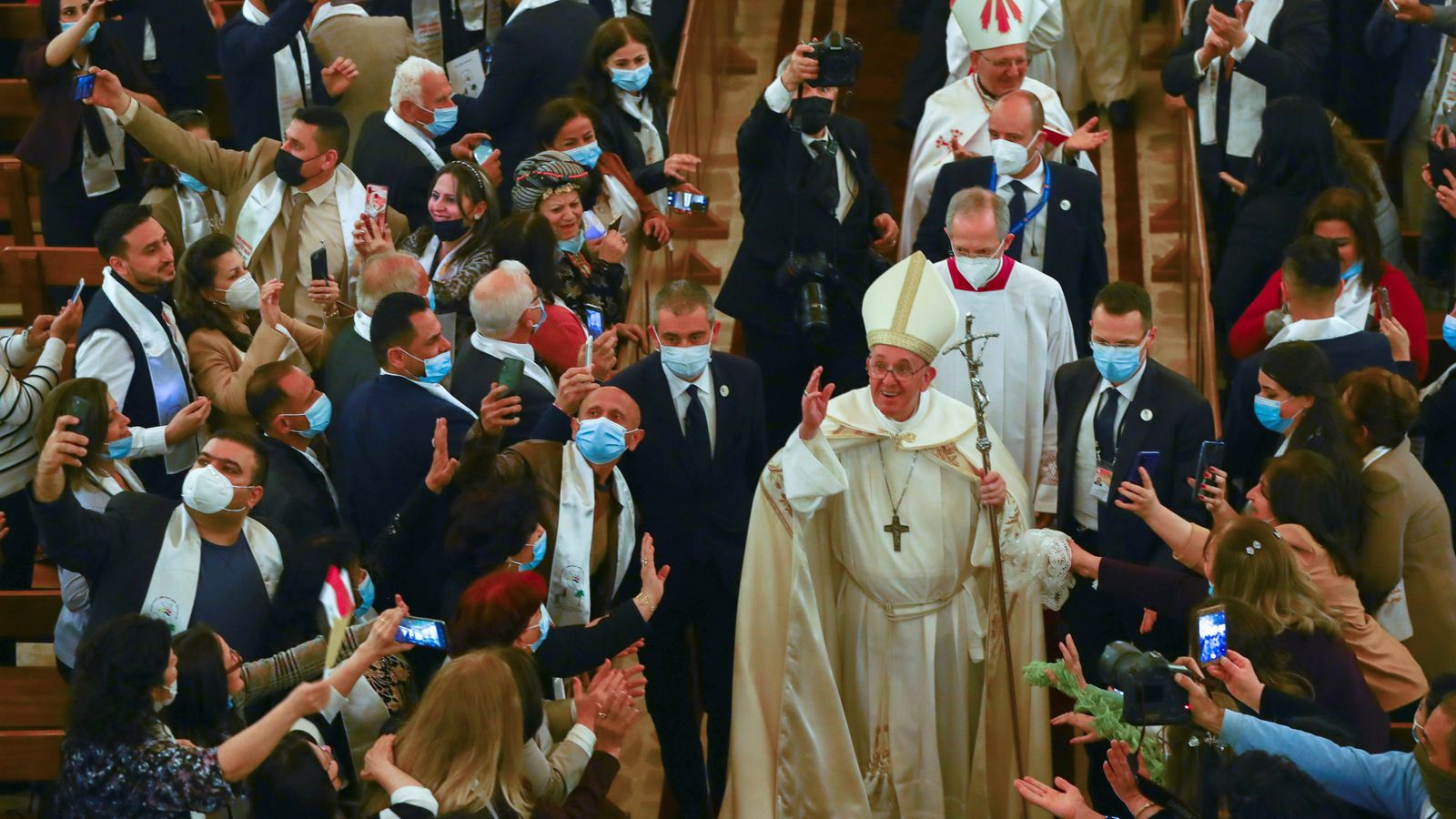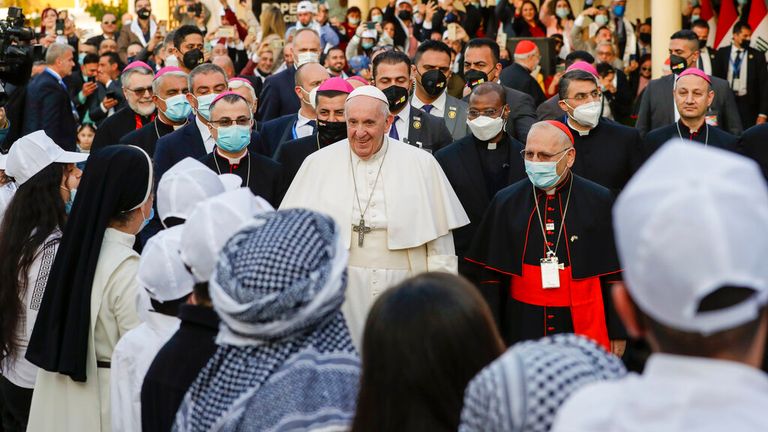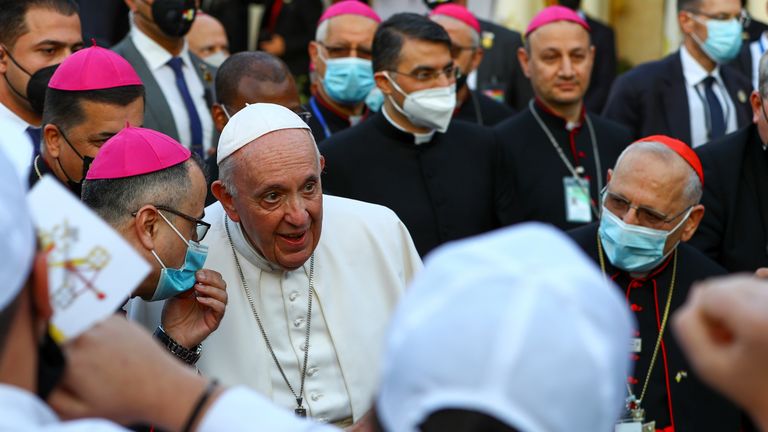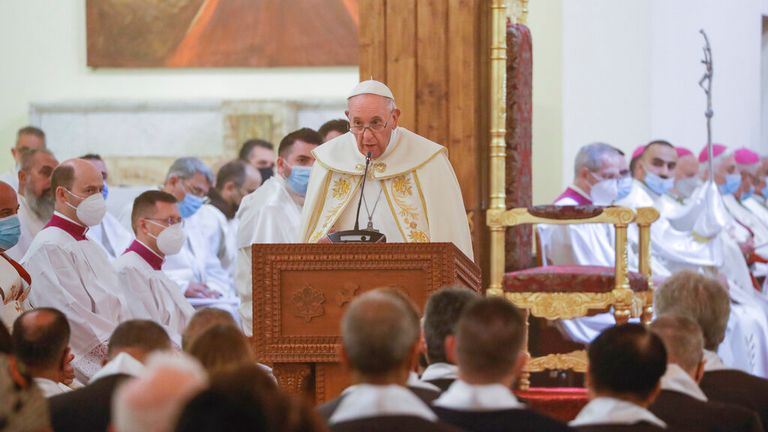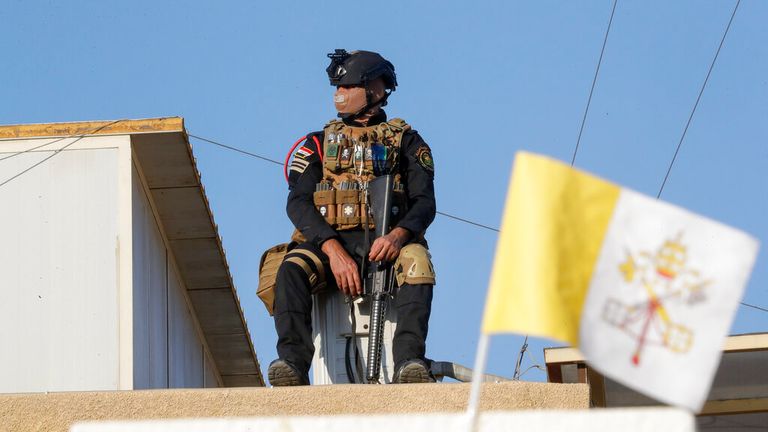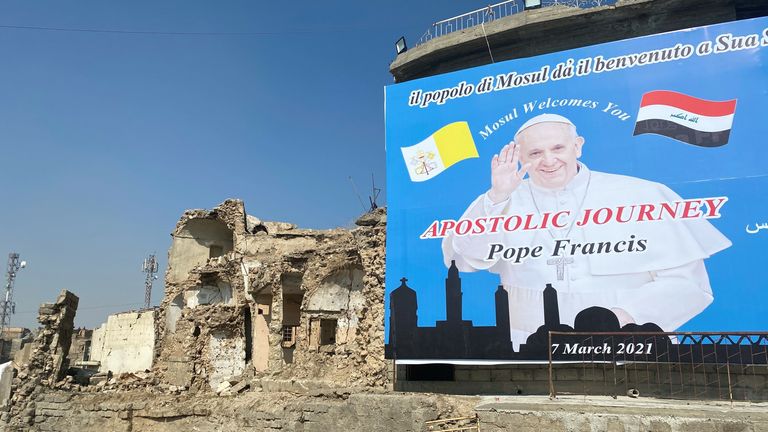The Pope has performed Mass in a Baghdad cathedral after earlier holding a historic meeting with Iraq’s top Shia cleric.
Francis was greeted by enthusiastic well-wishers at the Chaldean Cathedral of Saint Joseph on the second day of his visit to the country.
Only 100 or so people were allowed in because of COVID restrictions but Iraq‘s president, foreign minister and speaker of the house of parliament were among them.
The Pope used the service to pay tribute to “those of our brothers and sisters who here too have suffered prejudice and indignities, mistreatment and persecutions for the name of Jesus”.
He smiled broadly and waved as he left the cathedral, with people in the pews trying to take a photo or selfie as he passed.
Francis earlier met Grand Ayatollah Ali al Sistani at the Islamic scholar’s home in Najaf.
Reflecting the tight security around his trip, he arrived in a bullet-proof vehicle.
As he entered the house, white doves were released, reflecting the themes of this four-day visit – peace, reconciliation and inter-faith dialogue.
The meeting – the first of its kind between two such senior leaders in the Christian and Muslim world – was held privately and holds huge symbolism.
Al Sistani is revered by the Shia majority in Iraq but his influence across different sects and across the Muslim world runs deep.
Following the meeting, al Sistani called on other religious leaders to hold great powers to account and for wisdom and sense to prevail over war.
Speaking yesterday in Baghdad, the Pope spoke of his desire for interfaith dialogue and tolerance at a time of increasing religious polarisation.
Francis said: “Only if we learn to look beyond our differences and see each other as one human family, will we be able to begin an effective process of rebuilding and leave to future generations a better, more just and more humane world.”
From Najaf, the Pope travelled to Ur, the ancient archaeological site believed to be the birthplace of Abraham, the patriarch of the three monotheistic religions – Islam, Christianity and Judaism.
Despite criticism about the timing of the trip, with the country experiencing a spike in coronavirus cases, Vatican officials and the Iraqi government say precautions are being taken.
Crowds are being limited and social distancing enforced.
Security is also extremely strict – the roads used by the Pope’s convoy were closed to other traffic, with trucks with machine guns and even tanks positioned in some places.
On Sunday, the Pope will fly to the Kurdish city of Erbil before taking a helicopter to Iraq’s second city, Mosul.
The destroyed city was held by the so-called Islamic State for four years between 2014 and 2017. Its grand mosque of al Nouri, where ISIS leader Abu Bakr al Baghdadi declared his caliphate in 2014, is in pieces.
The most poignant part of the trip will be his visit to Christian towns desecrated under ISIS.
Iraq’s religious minorities including Christians and Yazidis have been persecuted for years and suffered terribly first under al Qaeda and then ISIS.
In the 1990s, Iraq’s Christian population was about 1.5 million. It now stands at around 250,000. Thousands have been killed by extremists and many hundreds of thousands more forced to flee.
